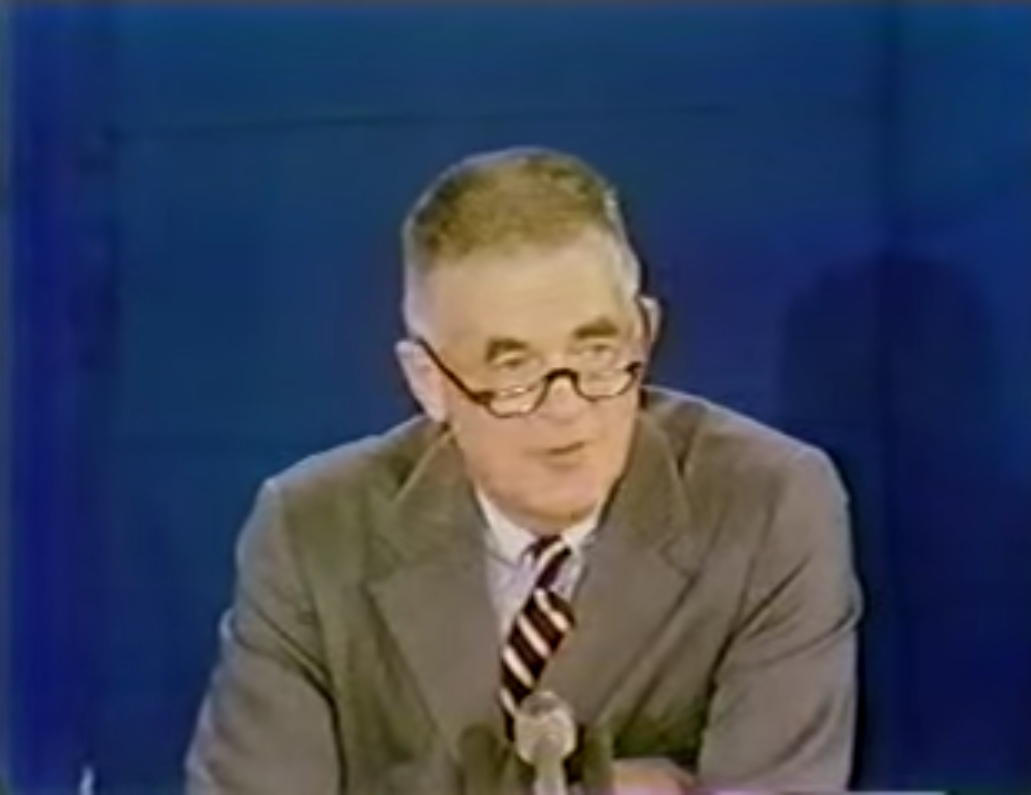Archibald Cox’s Secret Proposal
In a confidential letter following the Saturday Night Massacre, Special Prosecutor Archibald Cox made a remarkable proposal—a vision for a sort of Monday Afternoon Resurrection. Cox’s letter, discovered for the first time in a manuscript collection in the Library of Congress, ranks among the odder legal arcana of the Watergate scandal.

Published by The Lawfare Institute
in Cooperation With

In a confidential letter following the Saturday Night Massacre, Special Prosecutor Archibald Cox made a remarkable proposal—a vision for a sort of Monday Afternoon Resurrection. Cox’s letter, discovered for the first time in a manuscript collection in the Library of Congress, ranks among the odder legal arcana of the Watergate scandal.
The tale of the Saturday Night Massacre is well-known. On July 23, 1973, Cox subpoenaed tapes from the White House. After challenging the subpoena and losing in both district court and the U.S. Court of Appeals for the D.C. Circuit, President Nixon directed Cox to accept transcripts instead. Defying the president, Cox said he intended to enforce the subpoena. On Saturday, Oct. 20, Nixon ordered him fired. Attorney General Elliot Richardson resigned rather than carry out the order. When Deputy Attorney General William Ruckelshaus also refused to comply, he too lost his job. (He said he resigned. The White House said he was fired.) Finally, Solicitor General Robert Bork, as acting attorney general, got rid of Cox.
So far, the story is familiar—but a little-known epilogue followed. Searching through the papers of John Sirica, chief judge of the federal district court in D.C. during Watergate, my daughter Clara Bates discovered a letter from Cox that—as far we know—has never before been published. Having been fired from the executive branch, Cox offered his services to the judicial branch. On Monday, Oct. 22, he wrote to David L. Bazelon, chief judge of the D.C. Circuit, with a copy to John Sirica. Sirica quotes the letter in his 1979 memoir, “To Set the Record Straight,” but it doesn’t seem to have been released anywhere in full before now. You can read it in full at the bottom of this post.
In the letter, Cox says he plainly holds no authority under the executive branch, but he wonders if he still has obligations to the grand jury and to the court, at least with regard to the outstanding subpoena for White House tapes. (He mistakenly says he was fired on Friday rather than Saturday.) His tone is half-apologetic. Though he’s “reluctant to intrude” and “anxious not to involve your court or any other in avoidable controversy,” he says, he’s “genuinely doubtful” about his professional duty. Cox offers to provide, if the judges want it, “a full report on the immediate issues concerning the subpoena and the effect of recent events upon the progress of the grand jury investigations.” He closes by saying he won’t make his letter public, though he doesn’t object if the judges do so.
Sirica found it “an interesting idea,” according to his memoir, but he wondered how it would look for him to undercut the president by restoring some measure of Cox’s authority. Sirica believed that Cox, behind the diffident phrasing, had in mind more than a one-off progress report. He thought Cox wanted to be appointed “counsel to the grand jury”—though his memoir doesn’t elaborate on what that would have looked like.
Ordinarily, a grand jury counsel is an outside lawyer who serves as something of a counterweight to a prosecutor. The theory is that prosecutors act as advocates; they can’t be expected to give objective legal advice too. It’s not the norm in the federal system, but in Hawaii state courts, a grand jury counsel attends sessions and advises jurors on the law. Sirica may have been thinking of Cox in that role. If nothing else, Cox could keep an eye on Justice Department prosecutors who might be tempted to terminate the Watergate investigation.
Nevertheless, events soon mooted Cox’s offer. The day after the letter, President Nixon’s lawyers, chastened by the angry response to the Saturday Night Massacre, agreed to comply with the subpoena for the tapes. (Judge Sirica had been ready to hold the president in contempt of court.) At the end of the week, the administration announced that it would appoint a new special prosecutor. Cox’s idea was relegated to the archives.
In contemplating the investigation by Special Counsel Robert Mueller, many commentators are revisiting Watergate. As precedent for a potential Mueller report, some cite the grand jury report that Cox’s successor, Leon Jaworski, sent to the House of Representatives for use in the Nixon impeachment inquiry. In fact, Benjamin Wittes, Jack Goldsmith and I, represented by lawyers from Protect Democracy, are asking a federal judge to unseal the Jaworski report—in part so that it might serve as a model for Mueller.
But what if Mueller doesn’t get to the point where he might be prepared to release a report? There has been a great deal of speculation recently over the job security of Deputy Attorney General Rod Rosenstein, the overseer of the Mueller investigation, who many expected to be fired after the New York Times reported that he had discussed wearing a wire in the White House and invoking the 25th Amendment to remove the president from office. Rosenstein now seems to be on safer ground—but that could change any moment given President Trump’s mercurial nature. It is not out of the question that, in a reprise of the Saturday Night Massacre, the president might fire Rosenstein and Rosenstein’s successor might fire Mueller.
What then for the special counsel investigation? Cox’s letter from 1973 suggests a possible workaround if Mueller is dismissed—at least in the short term. Maybe it’s an implausible solution to an implausible problem. Or maybe it’s one more lesson from the age of Nixon worth remembering in the age of Trump.


.jpg?sfvrsn=676ddf0d_7)

